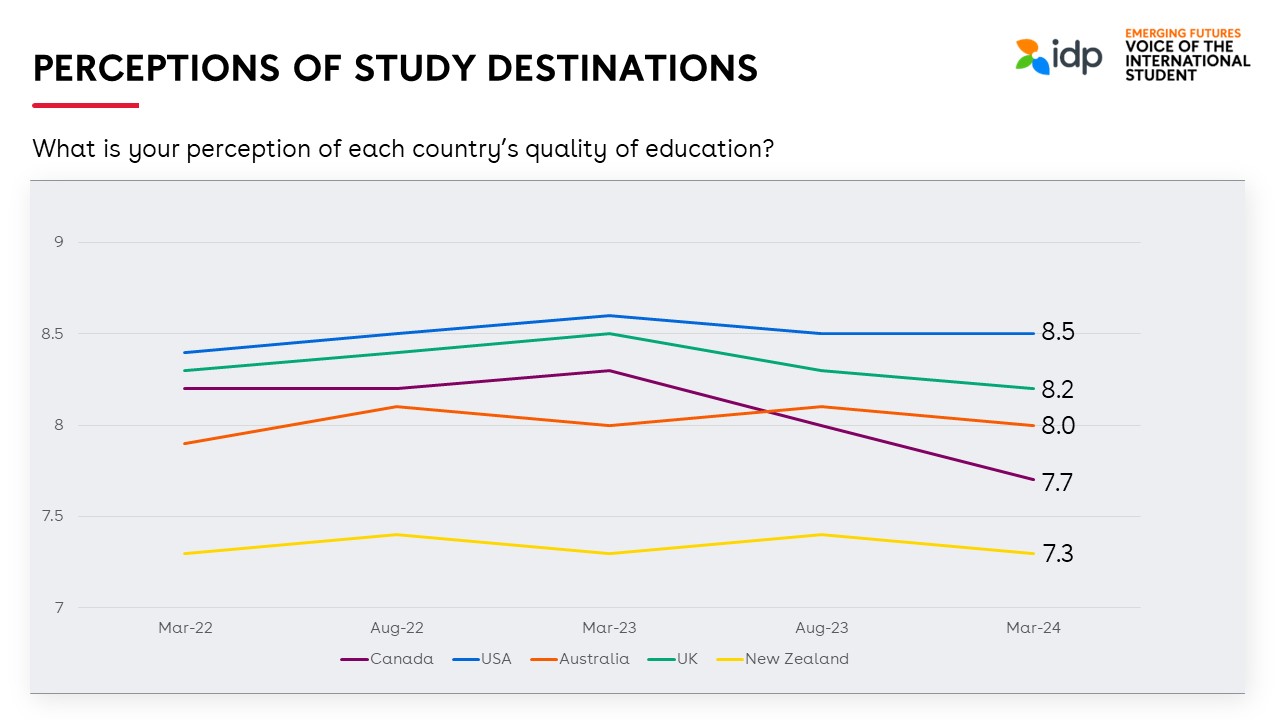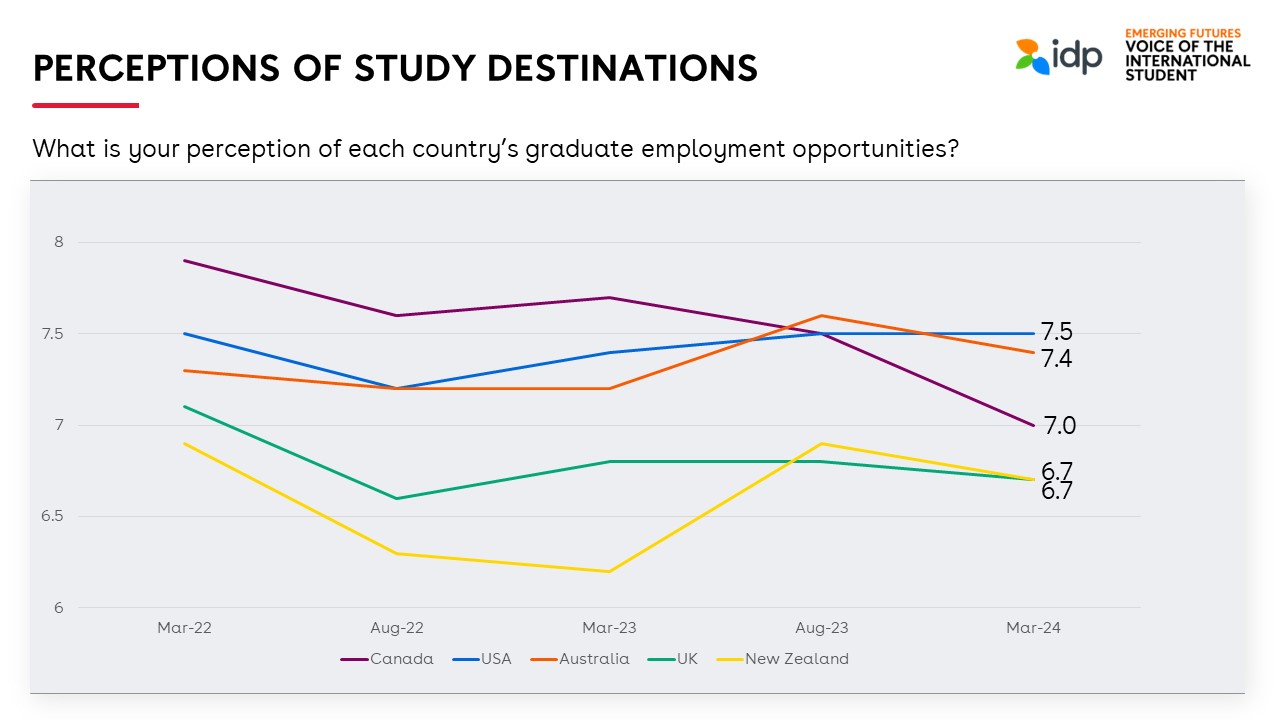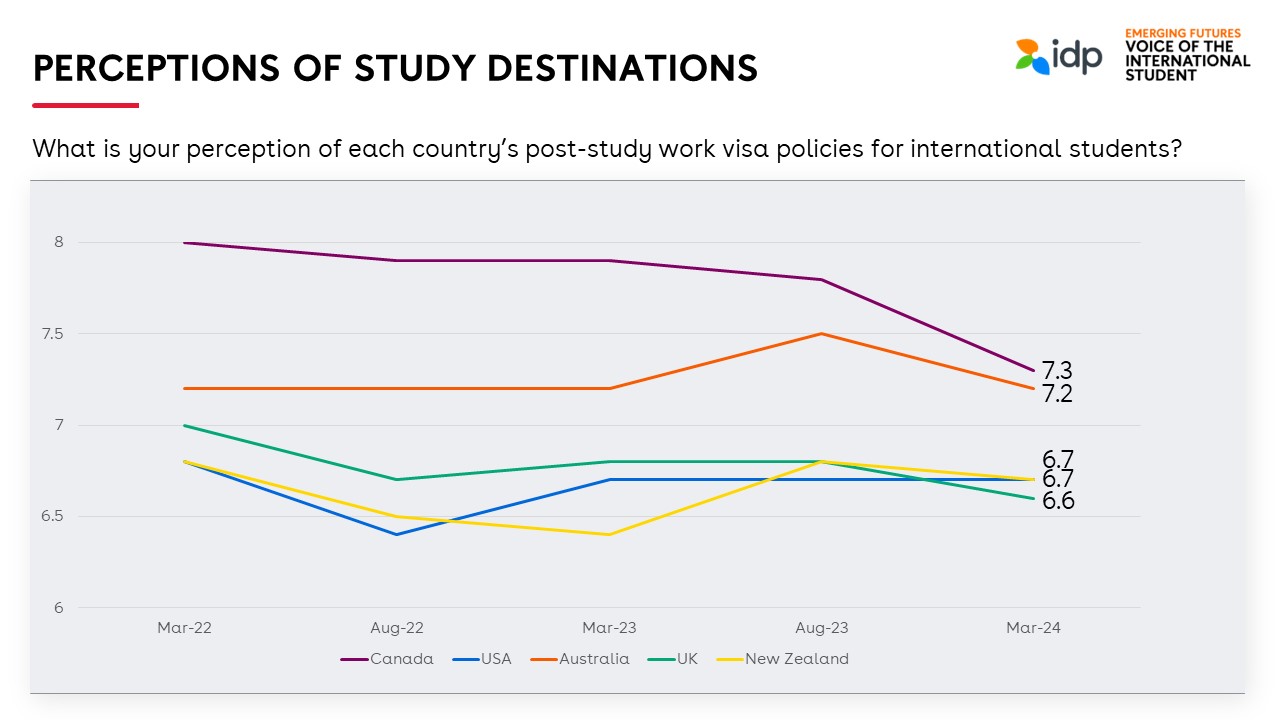As the higher education sector holds its breath for the findings and recommendations of the Migration Advisory Committee (MAC) review of the Graduate route, there has been plenty of time for reflection on the different scenarios that might face us.
For many, it seems unthinkable that the UK would remove the right for international students to stay in the UK after graduation and hinder their opportunity to find work, make a start on the career ladder and achieve that critical experience they desire. This time for reflection has also allowed colleagues at IDP to look back through our many research studies and examine just how important those graduate employment opportunities and post-study work rights are to international students who are able to choose from a catalogue of other destinations. And we’ve seen that even at the very earliest stages of student research around destination choice, a Graduate route is crucial for the appeal of the UK’s overall international education offering.
In our latest Emerging Futures student research, IDP surveyed more than 11,500 international students from across 117 countries and asked them to choose the top factor in their decision-making process from a long list of possible drivers. The number one reason behind their first-choice decision was that the destination offers “high quality of education,” followed by “good employment opportunities after graduation.”
Student perceptions of the top destinations show us that the UK ranks highly for “quality of education” (sitting just behind the USA). When asked what factors are important in understanding what “high quality of education” means, the top-three factors were the availability of graduate schemes, having world renowned/high reputation institutions, and having a wide range of academic programmes on offer.

This caused us to investigate further as to why students link graduate opportunities and post-study work policies with the quality of education provided. Students clearly see an intrinsic link between institutions having strong ties with industry and the ability to provide graduate-level jobs and work schemes that will utilise their high-quality education.


So, what are students’ perceptions of the UK in relation to graduate employment opportunities and post study work policies? Spoiler: they’re not great. The UK sits behind the USA, Australia, Canada, and New Zealand respectively in the eyes of international students for its graduate employment opportunities – fifth place overall. And it’s a similar story for post-study work policies – also fifth behind that same list of other destination markets.
We looked back a bit further. In our Emerging Futures 4 survey in late 2023, we asked students what employment services they felt would be most valuable to them when preparing for employment and we compared this with the list of services and support they received.
The respondents said internship opportunities, networking opportunities, making connections with suitable companies and employers, one-to-one careers guidance, and help with interview skills were the most important aspects of support needed to feel well prepared to access the post-graduation job market.
How are students getting the careers support they need?
While there’s still a mixed picture with specific support for international students, there are some fantastic examples of good practice within IDP’s university partners.
Aston University’s Business School prepares international students throughout their studies by integrating and assessing internships as a core component of its postgraduate programmes. The Aston Global Advantage module enables students to build their confidence and professional networks, helping them to move effectively into their careers. Aston Business School also works with Impact Consulting to provide opportunities to work directly with a client on a live project which will form the basis of the student’s Master Business project/dissertation while completing the work-based experience stream at the same time. This opportunity is increasingly popular as students see the value in combining their studies with work experience.
Brunel’s Professional Development Centre (PDC) provides international students with a specialist job portal, the “Student Circus”, which provides access to graduate job opportunities whether the student wants to stay in the UK or return home after graduation, there are also country career guides, and a jobseekers’ toolkit, among other resources. The PDC assists students in finding placements and internships, and many students go on to take up graduate roles.
At UWE Bristol, GradLink is an award-winning careers site for international students who are studying or have graduated in the UK, providing connections to employers and job opportunities across the world. GradLink UK focuses on UK opportunities. The sites provide comprehensive job boards, and also sections on careers advice, graduate case studies, testimonials and sector news. UWE also provides bespoke careers support for international students which includes advice on gaining work experience, internships, and working in the UK.
Regardless of the outcome of the MAC review, it is important for the sector to shout loudly about the levels of specialist support the UK provides for the particular needs of international students. Showcasing how institutions work with industry to provide internship opportunities, graduate schemes and more, all tailored specifically for international students and graduates, must be a priority now to maintain our status as a provider of quality education and to show that the UK is a country of opportunity for all.
Whether the sector breathes a sigh of relief when the recommendations and subsequent actions of government are finalised or if there’s a further period of uncertainty for institutions and for students, our call remains that we need to work together to push the messaging about why Destination UK remains an attractive study location and why our universities remain committed to producing future world leaders, pioneering thinkers, artists and change-makers.












